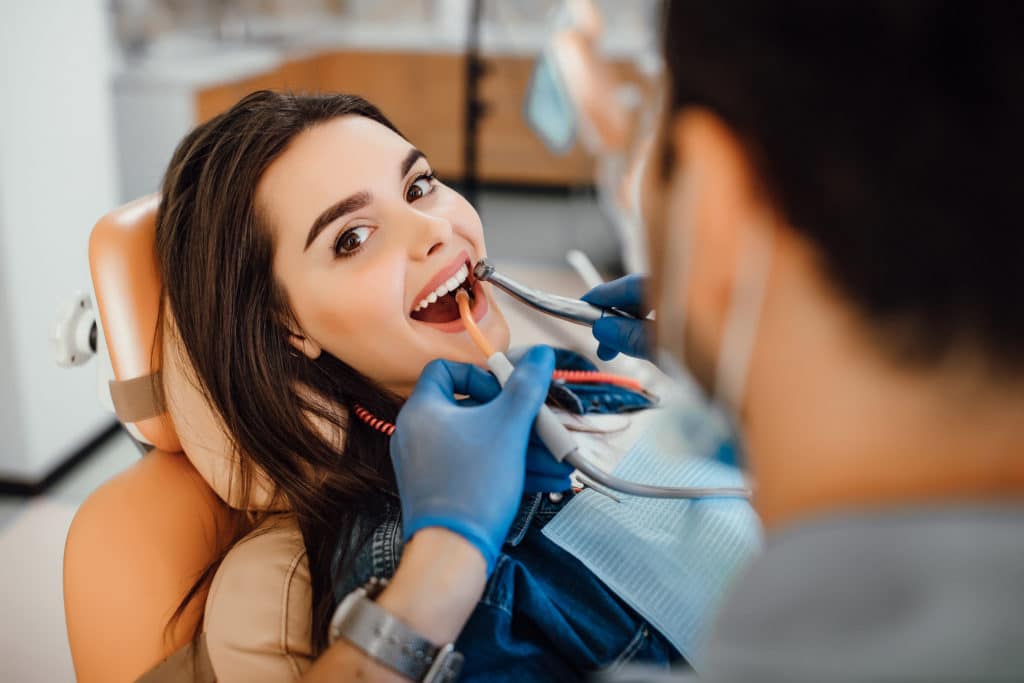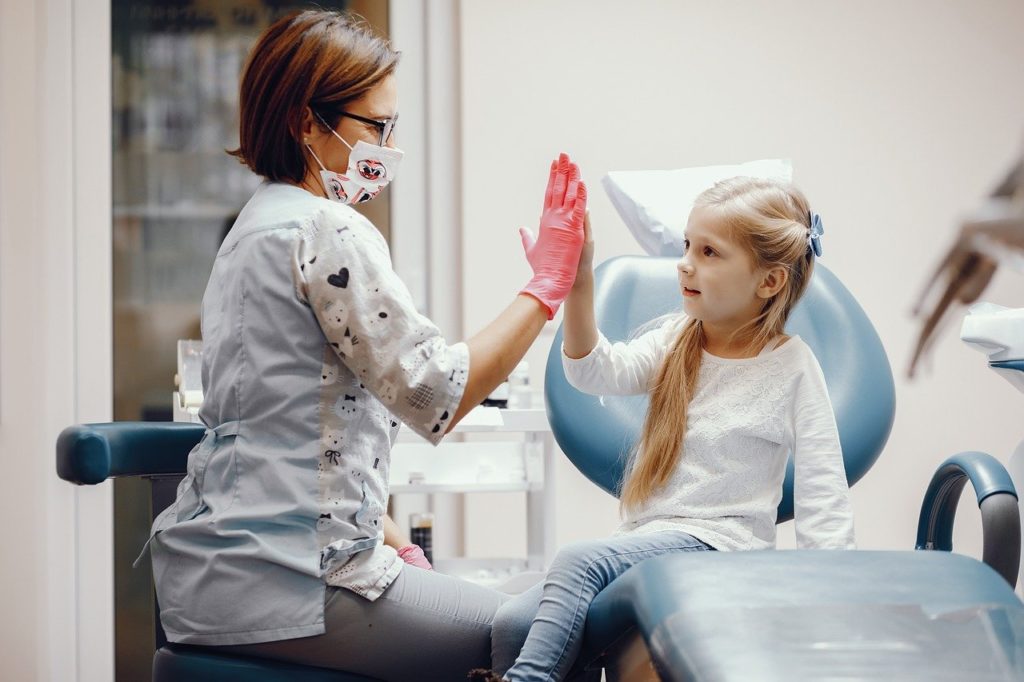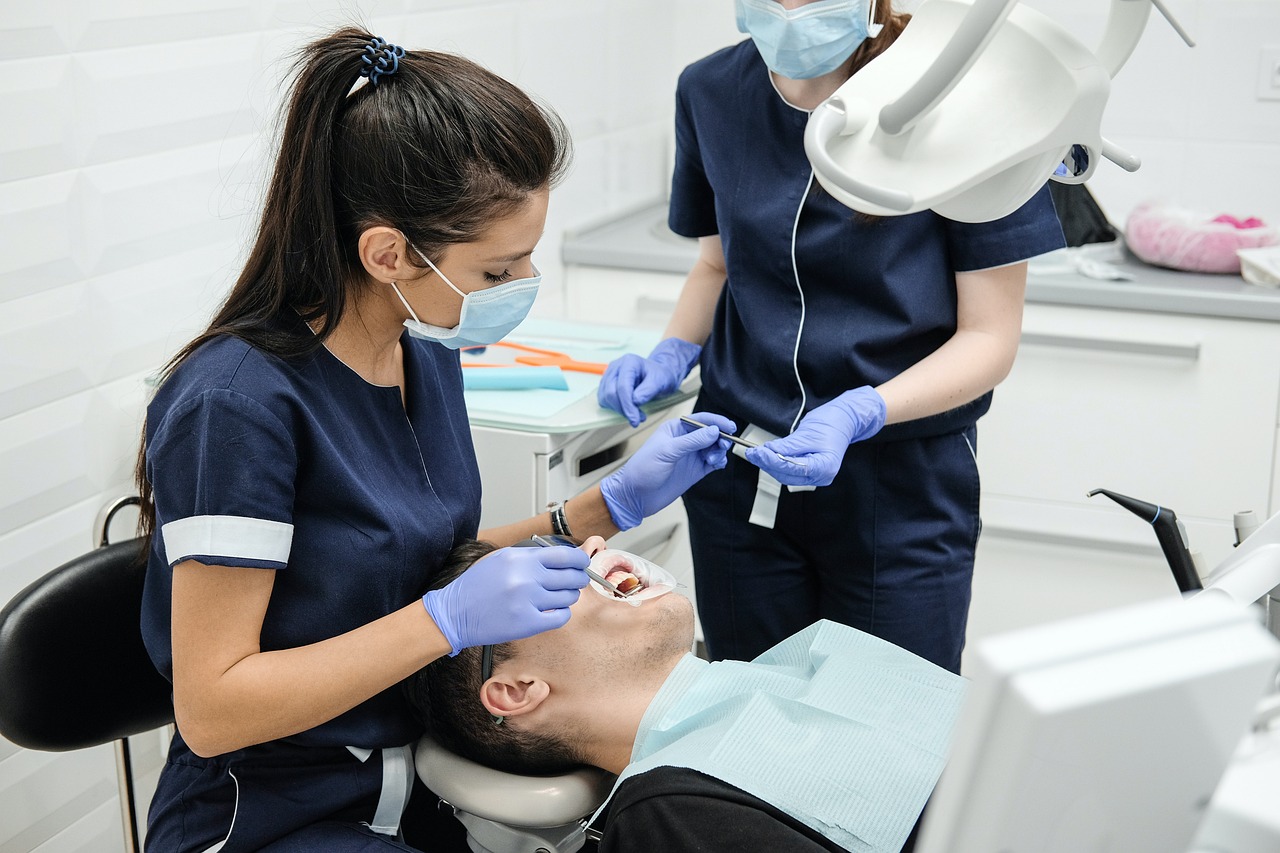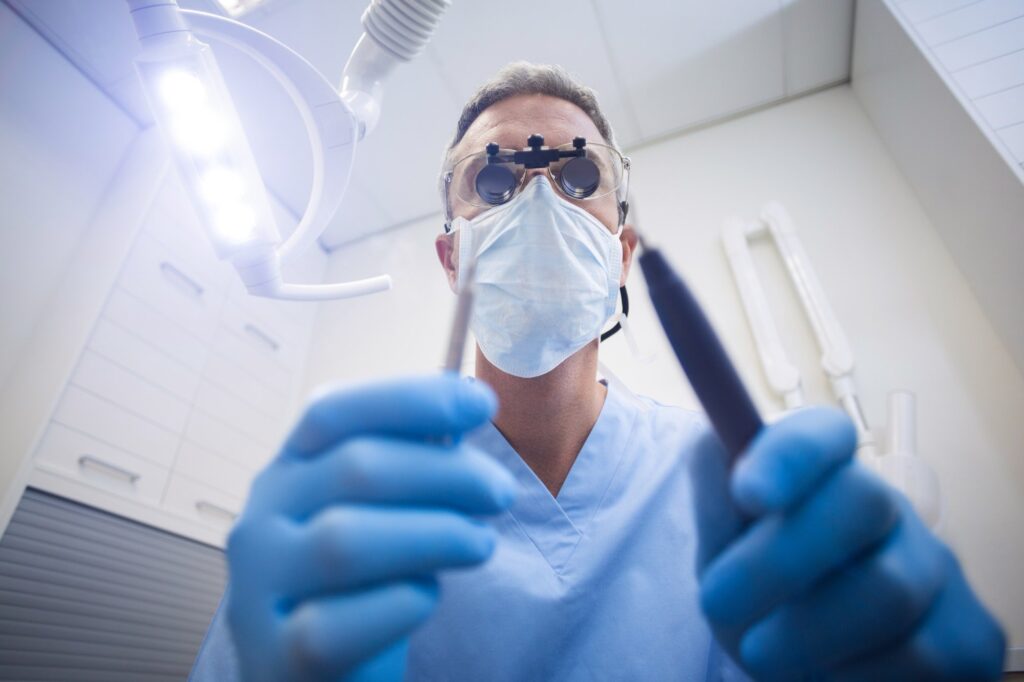When it comes to maintaining optimal oral health, Regular Dental Examinations stand as a cornerstone. These check-ups, often recommended twice a year, play a pivotal role in ensuring the health and longevity of your teeth and gums. Let’s delve into the significance of these examinations and the various aspects they encompass.
Oral Health Check: More Than Just a Quick Look
An Oral Health Check is a thorough examination of your mouth, teeth, and gums. It’s not just about spotting cavities; it’s a comprehensive assessment that can:
- Detect early signs of tooth decay or gum disease.
- Identify issues like oral cancer, which might not have visible symptoms in the early stages.
- Monitor the health of existing dental work, such as fillings, crowns, and veneers.
By catching potential problems early, preventive measures can be taken, often saving time, discomfort, and money in the long run.
Preventive Care: A Proactive Approach to Oral Health

Preventive Care is all about taking steps to avoid dental issues rather than just treating them when they arise. This includes:
- Regular cleanings to remove plaque and tartar.
- Fluoride treatments to strengthen teeth and prevent decay. Learn more about the benefits of fluoride here.
- Dental sealants to protect the chewing surfaces of teeth, especially in children.
- Education on proper brushing, flossing, and dietary habits will help in the next dental examinations
By adopting a preventive approach, you not only ensure the health of your teeth and gums but also avoid potential complications and costly treatments down the line.
Dentists in Pennsylvania: Leading the Charge in Oral Health
Pennsylvania is home to a plethora of skilled and dedicated dentists, with clinics like Casey Dental setting the gold standard in patient care. These professionals emphasize the importance of regular check-ups and are equipped with the latest technology to provide top-notch care.
Dental Veneers and Tooth Sensitivity
While regular examinations focus on health, they also play a role in aesthetic treatments. For instance, dental veneers, thin shells placed over the front of the teeth, can transform a smile. However, some patients might experience tooth sensitivity post-procedure. Regular check-ups ensure that any sensitivity is managed and that veneers remain in pristine condition.
Visiting the Dentist Twice a Year: Is It Really Necessary?
The common recommendation is to visit the dentist for a check-up every six months. But why?
- Plaque and Tartar Build-up: Even with diligent brushing and flossing, plaque can build up and harden into tartar, which can only be removed by a professional.
- Early Detection: Regular visits mean potential issues, from cavities to gum disease, are spotted and addressed early.
- Maintaining Dental Work: If you have fillings, crowns, or implants, regular examinations ensure they’re in good shape. For instance, learn more about the care of single-tooth implants here.
In essence, these biannual visits are a small investment in time that pays off significantly in maintaining your oral health.
The Ripple Effect: How Poor Oral Health Can Lead to Systemic Illnesses

Oral health is not just about a sparkling smile or fresh breath. It’s a gateway to your overall well-being. Neglecting your oral hygiene can have far-reaching consequences, some of which might surprise you in your dental examinations
- Infective Endocarditis
One of the severe complications of poor oral health is the risk of bacteria from the mouth spreading to the bloodstream. This can lead to a life-threatening condition called infective endocarditis. It’s an infection of the heart valves and can be particularly dangerous for individuals with pre-existing heart conditions. Regular dental check-ups can help in early detection and management. - Gum Infections and Abscesses
Gum infections, if left untreated, can escalate into painful abscesses. These pockets of pus can spread to other teeth, the jaw, and even other parts of the body. In severe cases, dental professionals might prescribe antibiotics to manage the infection. An untreated tooth abscess can lead to more significant complications, including sepsis, a life-threatening response to infection. - Oral Cancers
Poor oral hygiene, combined with habits like tobacco use and excessive alcohol consumption, can increase the risk of oral cancers. Regular dental examinations can help in early detection, which is crucial for effective treatment. - Digestive Issues
The mouth is the starting point of the digestive system. Poor oral health can lead to digestive issues. For instance, an imbalance in the mouth’s natural bacteria can result in conditions ranging from intestinal failure to irritable bowel syndrome. - Respiratory Infections
Bacteria from the mouth can travel down the throat and into the lungs, leading to respiratory infections like pneumonia. This is especially concerning for individuals with compromised immune systems or pre-existing respiratory conditions.
Spotlight on Dental Examinations: The Comprehensive Oral Evaluation

When it comes to dental examinations, one stands out as the most foundational and frequently performed: the Comprehensive Oral Evaluation. This examination is often the first step in a patient’s journey to optimal oral health, especially for those visiting a dentist after a long hiatus or for the very first time.
- What is a Comprehensive Oral Evaluation?
A Comprehensive Oral Evaluation is a thorough assessment of the entire oral cavity. It’s not limited to just the teeth; it encompasses the gums, the bite, the jaw, and other oral tissues. The primary goal is to get a holistic view of the patient’s oral health status. - Key Components of the Evaluation:
- Visual Examination: The dentist visually inspects the mouth, looking for signs of decay, gum disease, and other potential issues.
- Digital X-rays: These provide a detailed view of the teeth and jawbone, helping identify cavities, infections, or bone loss. Dental X-rays are a crucial tool in this evaluation.
- Gum Health Assessment: The dentist or hygienist will check the gums for signs of inflammation, bleeding, or recession, indicators of gum disease.
- Oral Cancer Screening: A visual and tactile examination of the oral tissues to detect any abnormalities that might suggest precancerous or cancerous changes.
- Bite Analysis: This assesses how the upper and lower teeth come together, ensuring there’s no misalignment causing issues like teeth grinding or jaw pain.
- Why is it Essential?
The Comprehensive Oral Evaluation in dental examinations serves as a roadmap for future dental treatments. It helps the dentist understand the patient’s unique needs and tailor a treatment plan accordingly. Moreover, it’s an opportunity to catch potential issues early, making treatments more effective and less invasive.
Conclusion: Making Regular Dental Examinations a Priority
Oral health is a reflection of overall well-being. By prioritizing regular dental examinations and adopting a preventive approach, you’re taking a proactive stance towards your health. Whether you’re in Pennsylvania or anywhere else, make these check-ups a non-negotiable aspect of your healthcare routine. Your smile will thank you!
Frequently Asked Question
Why are regular dental examinations important for oral health?
Regular dental examinations are crucial for maintaining optimal oral health as they allow for early detection of tooth decay, gum disease, and other potential issues like oral cancer. These examinations help ensure the longevity of your teeth and gums by providing a comprehensive assessment beyond just spotting cavities.
How often should I visit the dentist for a routine examination?
It is generally recommended to visit the dentist for a routine examination twice a year. These bi-annual check-ups are essential for preventive care, allowing for early intervention and management of any oral health issues that may arise.
Can poor oral health lead to other health problems?
Yes, poor oral health can have a ripple effect and lead to systemic illnesses. Conditions such as gum disease have been linked to more serious health issues like heart disease, diabetes, and respiratory problems. Regular dental examinations help mitigate these risks by identifying and addressing oral health concerns early.


